William Barnes, Dorset's own beloved poet and scholar, was curate of this beautiful church at Whitcombe, just outside Dorchester, England. The church is no longer used but remains consecrated. The site of Whitcombe church has been in use since the Saxon period (AD 410-1066), and remnants of two Saxon crosses stand in the churchyard. The oldest part of the current church is the 12th century nave, with the addition of a 15th century chancel and a late 16th century two-storey west tower. The interior features some very fine wall paintings, and a 13th century font made of Purbeck (Dorset) marble.
William Barnes, who popularized writing in the distinct Dorset dialect. Barnes preached his first and last sermon at Whitcombe.
Death's head appears most surprised...
Colourful lichen on the church walls shows the purity of the air.
Leaded glass windows and an innovative tilting glass pane for ventilation.
Very early wall paintings of Jesus and child.
The pulpit and the baptismal font made from local Purbeck stone.
A view to the outside from the entry gate which leads to the church. Such gates were needed to keep farm animals from wandering into the church!
The entry door to the church.
The village of Whitcombe, close by the church.
This is a 'saddle stone' used to support a portion of a grain store and to prevent rats or other creatures climbing up and getting into the grain. There would have been 6-8-10 such stones under the grain store floor.


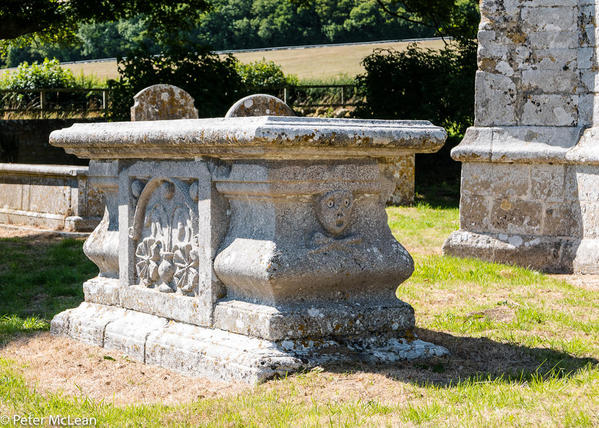
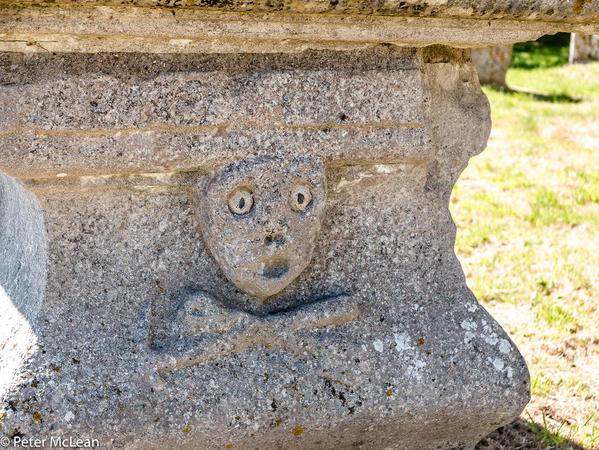
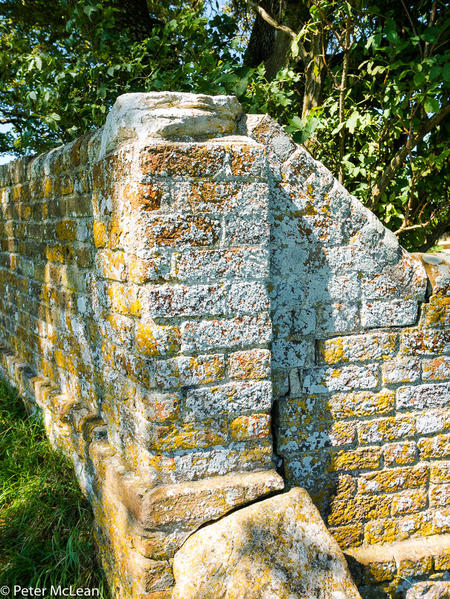


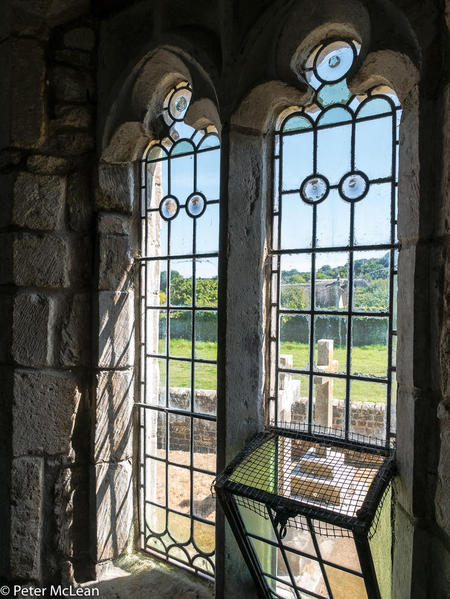
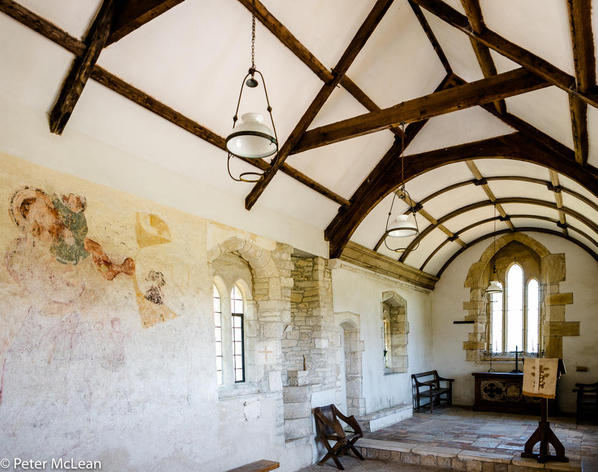
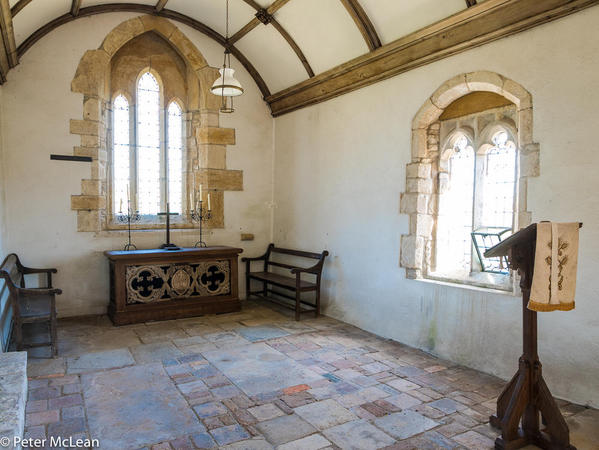
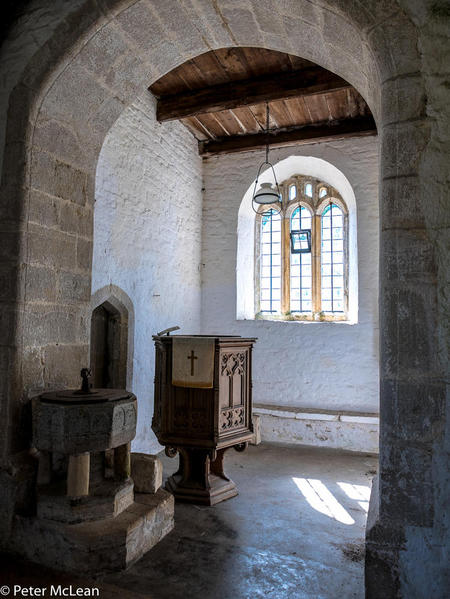

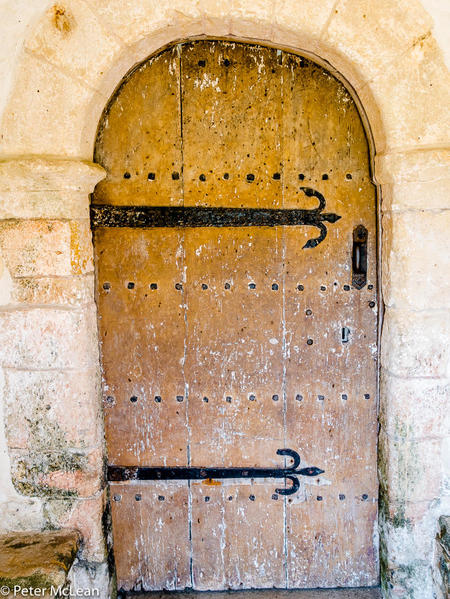
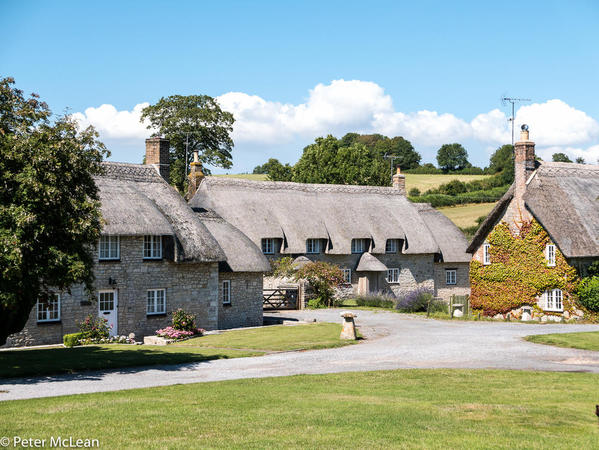
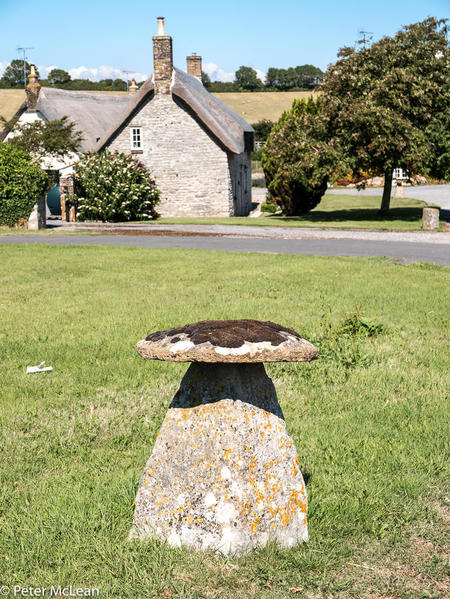


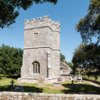



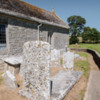





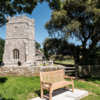
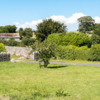
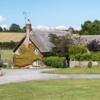


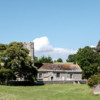

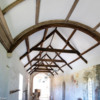
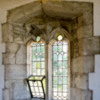

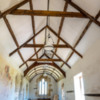
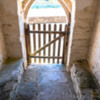
Comments (1)